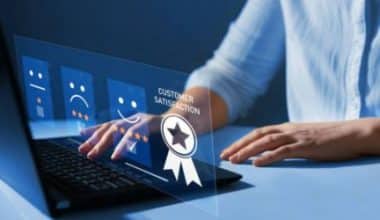Customer relationship management software allows you to do so much more than simply keep track of contacts. You can develop more synergy between your firm and customers by putting in place the correct system. These top-rated customer relationship management CRM software enable you to record those crucial encounters.
The Best Customer Relationship Management CRM Software in 2023
- Zoho CRM is the best choice for remote and hybrid teams.
- Monday.com Sales CRM is the best for project management.
- Pipedrive is the best option for visual sales pipelines.
- Zendesk is the best option for managing the entire customer life cycle.
- Salesforce is the best for small businesses
- Oracle NetSuite CRM is the best for e-commerce.
- HubSpot CRM is the best for integrations.
- Sage CRM is the best for customer support.
- Insightly is the best for customization.
- SugarCRM is the best choice for medium-sized businesses.
#1. Zoho CRM
Zoho CRM enables remote workforces to accomplish more together while on the go and in diverse places. They are designed to help you generate more leads, close more sales, and properly measure performance with ease and efficiency. Zia, the AI-powered assistant, forecasts leads and deals, finds potential consumers for conversion and provides user-friendly direction to huge sales teams. With its gamification features that encourage friendly rivalry, Zoho is also a tempting alternative for remote workforces. Every lead, call, and the deal can be turned into a trophy that fosters a competitive and stimulating sales environment, regardless of where your team members are situated.
Zoho has four different pricing plans: Standard, Professional, Enterprise, and Ultimate. The Enterprise package is the most popular, according to the software supplier; it costs $40 per person per month when invoiced annually. It includes Zia AI for assistance, a customer journey command center, Canvas visual CRM, a mobile software development kit, and multiuser portals. The Standard plan costs $14 per user per month, while the Ultimate plan costs $52 per user per month.
#2. monday.com: Best Sales CRM Software for Project Management
Monday.com Sales CRM is an excellent project management tool for firms with apparently unending sales duties and complex endeavors. The main work management platform offers critical timesaving and organizational capabilities. Monday.com Customers who utilize Sales CRM benefit from simple interfaces and an infinite number of project boards. Monday.com Sales CRM provides straightforward technology to help your success, whether you require a custom dashboard for unique communication needs or you want to go deeper analysis with customer data visualization capabilities. The fundamental work management platform distinguishes itself through its deliberate design and ability to run and grow to any workflow.
Monday.com Sales CRM offers a free restricted individual plan that includes two free seats, 5GB of storage, and over 200 templates. When invoiced annually, the Basic and Standard plans cost $10 to $14 per user each month. Monday.com Sales CRM offers the Enterprise package for large-scale businesses that require more complex automation, analytics, integration, and protection, but you must contact the sales staff for a specific quote. Students and nonprofit organizations that use Monday.com Sales CRM may be eligible for discounted or free access, and all annual subscribers may save up to 18% on programs.
#3. PipeDrive: The Best CRM Software for Visual Sales Pipelines
Pipedrive is an excellent customer relationship management CRM software for firms who want a robust visual sales funnel with at-a-glance information and data visualizations. Its visual tools make it simple to grasp each opportunity, and the drag-and-drop interface makes it simple for team members to respond to the mission-critical activities indicated on the dashboard. You may optimize your existing workflow systems and improve operations across departments by using customizable pipelines and fields. Pipedrive’s sophisticated mobile app also allows you to communicate with clients and team members on the go.
#4. Zendesk: The Best CRM Software for the Entire Customer Lifecycle
Zendesk provides unique native integration and customer service products to serve customers throughout their whole customer life cycle. Customer experiences that go beyond the sales team necessitate that everyone is on the same page. Zendesk Sell promotes cross-departmental cooperation by allowing teams from sales, marketing, and support to collaborate on the same unified data and goals. This CRM provider combines data from many customer touchpoints, preventing redundant conversations or missing context across departments. This is extremely useful for companies with complex customer profiles and long-term relationships. With Zendesk Support, for example, your support team can stay in the loop throughout the customer’s journey across marketing and sales.
#5. Salesforce CRM: The Best Customer Relationship Management CRM Software for Small Businesses
Salesforce is a CRM supplier that is well-known in the market and provides a popular essentials-level platform that is great for small and growing organizations. They offer a diverse variety of tailor-made solutions for sales, marketing, and customer support teams for those wanting to advance and delve deeper into CRM capabilities.
The Essentials plan, which is ideal for many small organizations, costs $25 per user per month and is limited to 10 users. Small teams will benefit from big-team capabilities such as lead management, web-to-lead capture, mass email, campaign management, email templates, case management, and five lightning-flow automation processes with this package. Custom apps and collaborative forecasting are included in the Professional plan, which costs $75 per user per month. The Enterprise plan costs $150 per month per user, while the Unlimited plan costs $300 per month per user. Each subscription level includes extra critical features that can help your company’s CRM capabilities improve as your contact list and revenue expand.
#6. NetSuite CRM: The Best E-Commerce CRM
Midsize e-commerce companies that rely on customer repeat business require a CRM platform that will assist them in better understanding their consumers’ shopping behaviors. Oracle NetSuite is a cloud-based ERP software with CRM capabilities that is ideal for business owners looking to give the best possible customer experience. The CRM module assists companies in maximizing the value of each client encounter at each touchpoint. NetSuite organizes, automates, and synchronizes customer interactions across departments such as marketing, sales, customer service, and technical support. That is, any employee can engage in a dialogue with any customer as though they have been the primary point of contact since the initial interaction.
Pricing for Oracle’s NetSuite CRM module is only available upon request, however, most small and medium-sized firms should anticipate paying a few thousand dollars each month. To obtain a lower overall cost per user, many NetSuite CRM users choose to package NetSuite with other Oracle services. While the unknown pricing may be a detriment to some, Oracle has software options for organizations of all sizes and getting a price quote is worth the effort if you’re searching for an all-in-one solution.
#7. HubSpot CRM: The Best CRM Software for Integrations
HubSpot is an excellent alternative for sales teams looking to increase their performance by centralizing data from diverse software suppliers, thanks to the new Operations Hub’s thousands of integration opportunities. Customers can easily link third-party applications to sync and sanitize customer data while automating business processes to help your team work more efficiently. Your HubSpot CRM records sales funnel data, actionable insights, productivity, and performance throughout your sales activities once you’ve integrated your other software platforms.
#8. Sage CRM: The Best Customer Support CRM Software
Providing an exceptional customer experience does not end when you make a sale. You must maintain your customer relationships and respond fast when problems arise. The customer care tools in Sage CRM can assist your workers in providing support and monitoring resolutions without leaving the CRM platform. Team collaboration capabilities provide metrics on case histories and resolution timeframes to assist you in identifying service gaps, and reporting tools enable you to build detailed visual charts and reports.
Sage CRM features a central repository for storing common problems and solutions. For consistency and speedier case resolution, you can add solutions as you go or keep evaluated and preapproved solutions in the knowledge base. You can also establish a web self-service portal to assist your clients in resolving their own issues, lessening the pressure on your support crew.
#9. SugarCRM: The Best CRM Software for Small and Medium-Sized Businesses
Keeping up with a fast-paced and developing sales environment can be difficult for firms of all sizes. SugarCRM’s software was created with automation in mind, and its AI-powered predictions and lead discussions assist teams in operating more effectively and efficiently in a digital landscape. While SugarCRM’s add-on modules improve its automation capabilities, the fixed core features function to boost efficiency without any alterations. Reports and dashboard summaries provide a centralized view of the information obtained by SugarCRM’s automatic functions. To assist organizations in meeting monthly, quarterly, and annual targets, the AI system builds a complete history of a customer’s journey and forecasts outcomes with astonishing accuracy.
#10. Insightly: Best CRM Software for Customization
Insightly CRM provides customers with additional control over their sales activities by providing a unique and highly helpful relationship-linking tool. This is a dynamic and easily adaptable solution for small teams that lack the ability to manage all the specifics of sales operations. Administrators and representatives can design their ideal personal dashboards to highlight specific contexts, metrics, and workflows. While AI and predictive technologies are only accessible on the most expensive plans, all Insightly service options allow you to set custom rules for typical situations that trigger actions inside the sales process.
What is Customer Relationship Management CRM Software?
Customer Relationship Management Software (CRM software) is a tool designed to help your organization provide a unique and seamless experience for your customers, as well as build better relationships, by providing a complete picture of all customer interactions, tracking sales, organizing and prioritizing opportunities, and facilitating collaboration between various teams.
What are the Benefits of Customer Relationship Management CRM Software?
CRM software provides various concrete benefits to your business, including:
#1. Customer data management:
Most products include a searchable database for storing customer information (e.g., contact information) and pertinent documents (e.g, sales proposals and contracts). While most CRMs include this feature, it can also be integrated into other industry-specific systems. Contact management, for example, is a critical component of salon management software.
#2. Interaction tracking:
A CRM solution records customer interactions such as phone calls, in-person meetings, live chat, email, and other channels. These encounters can be manually recorded or automated using phone and email system integrations. Interactions on social media platforms such as Facebook, Twitter, and Google can also be tracked by some systems.
#3. Workflow automation
Customer relationship management software standardizes business operations by combining task lists, calendars, notifications, and templates. For example, after a task is designated as complete, the CRM system may create a task for the following stage in the process automatically.
#4. Reporting:
Using CRM tools, management can track performance and productivity based on CRM system actions, such as how many new contacts were added to the database that day or how much revenue was made. These technologies can also be used for sales forecastings, such as the next quarter’s sales pipeline, lead management, scoring, and customer satisfaction analysis.
What are the Business Sizes that use customer Relationship Management CRM Software?
CRM systems are utilized by a wide range of enterprises in a wide range of industries, hence there is no “typical” buyer. However, in general, you will fall into one of the following categories:
- Single user: The smallest firms, such as real estate agencies, freelancers, or independent contractors, have only one owner/employer.
- Small business buyers: These are companies with two to 100 people that do not have an IT department.
- Midsize business buyers: These are companies with 101-1,000 people and an IT department.
- Large business buyers: These are companies with more than 1,000 workers and an IT department.
What Features Does Customer Relationship Management CRM Software Have?
#1. Sales force automation:
Gives you the tools you need to streamline and control the performance of your sales staff. Also allows your salespeople to track prospects and customers more efficiently with functions including contact management, lead management, opportunity management, pipeline management, forecasting, and territory management.
#2. Marketing integration:
Using the CRM system, you can automate your marketing initiatives. It allows you to attract new visitors and customers, score customers as leads that can be nurtured along the sales pipeline, deliver marketing and promotional materials through various channels (e.g., email marketing, social media, etc.), obtain customer analytics to improve marketing efforts, and automate repetitive, time-consuming manual tasks.
#3. Customer service and support:
This capability consists of a set of tools that allow you to respond to the demands of your customers by recording their interactions with your organization in order to focus on delivering the best possible customer experience for each person. It enables customer care agents to use tools such as live chat, customer self-service, and multichannel management to document, route, track, resolve, and report customer issues via a trouble ticketing system.
#4. Help desk automation
This is comparable to customer service and support in that it focuses on providing the best individual customer experience possible. It is, however, mainly concerned with fixing IT difficulties, and the “customer” might be either external or internal (i.e., employees who need help with IT issues). Help desk automation entails the development of an electronic ticket, which customer support agents track and associate with customer profiles, which include contact information as well as, perhaps, purchase history or assets.
How much does Customer Relationship Management Software Cost?
CRM software is generally hosted online and licensed to companies on a per-user, per month basis, with one-time implementation costs—a model known as Software-as-a-Service (SaaS) or online CRM. Some suppliers may charge a fixed monthly fee regardless of the number of users, albeit this varies by market niche. For example, sales force automation is virtually universally charged per user/month, while marketing automation often is provided via a fixed monthly cost. This flat price, however, is becoming increasingly rare.
The typical per user/month cost in the SaaS market is rough $50-$90 per user/month, depending on desired capabilities, but it can be substantially lower (e.g., $10-$15 per user/month) or much more expensive (e.g., $200-$300 per user/month) depending on the vendor. There are also free CRMs available, however, they will have restricted capability.
Flat monthly expenses for more specialized systems typically start at $200/month and can rise up to around $3,000-$4,000/month for more complex systems.
When assessing CRM products, what questions should I ask vendors?
Don’t just rely on the information CRM vendors supply when studying them. Request a demo, during which a salesperson will show you the software’s numerous features.
But don’t let this demo be merely a sales pitch. Make certain to ask pertinent questions, such as:
What are the most common areas of the software where users report issues?
Focus not only on the features that providers tout but also on what users find difficult. This will also allow you to determine how truthful the representative is about their goods. If a vital element for your business’s demands and sales pipeline is a source of frustration for other customers, it’s likely that it will be for you as well.
What Are the Software Installation Costs?
Most CRM software suppliers will price it on a “per user, per month” basis, but there are frequently up-front expenses associated with deployment.
How Probable Is It That We Will Need Technical Assistance to Set Up, Install, And/or Utilize the Software?
If you have a tiny or no IT department, you’ll need to determine whether you’ll need (possibly expensive) tech support to implement and maintain the software.
How Simple Will It Be to Add Features Later?
As you gain experience with a certain system, you may wish to add more complex features, such as marketing integration or reporting and analytics. Check to determine if there are any hidden expenses or difficulties with adding things later. Integration with your social media management system is one example.
Is a Mobile App Available?
Because your workforce is most likely using smartphones or tablets, the type and cost of the CRM mobile app may be significant for your business. With an easy mobile app, your employees can swiftly and sometimes in real-time follow up with clients, make phone calls while on the go, check their email and social media activities, and improve the overall employee experience.
Make sure to inquire whether the mobile software is suitable for Android or iOS devices, depending on which your team employs.
Customer Relationship Management Software FAQs
What are the 3 types of CRM Systems?
The types of CRM systems are operational, analytical, and collaborative.
What are the 4 components of CRM?
Technology (applications and infrastructure), strategy (business goals and objectives), process (procedures and business rules), and people (organizational structure, skills, and incentives).
Related Articles
- Best Account Management Software For Your Business: Top 10 Reviews
- Best Product Management Software and Tools In 2023
- CLIENT MANAGEMENT SOFTWARE: Top 11 Picks For Your Business
- How To Start a Real Estate Business: Step-by-step Beginners Guide






